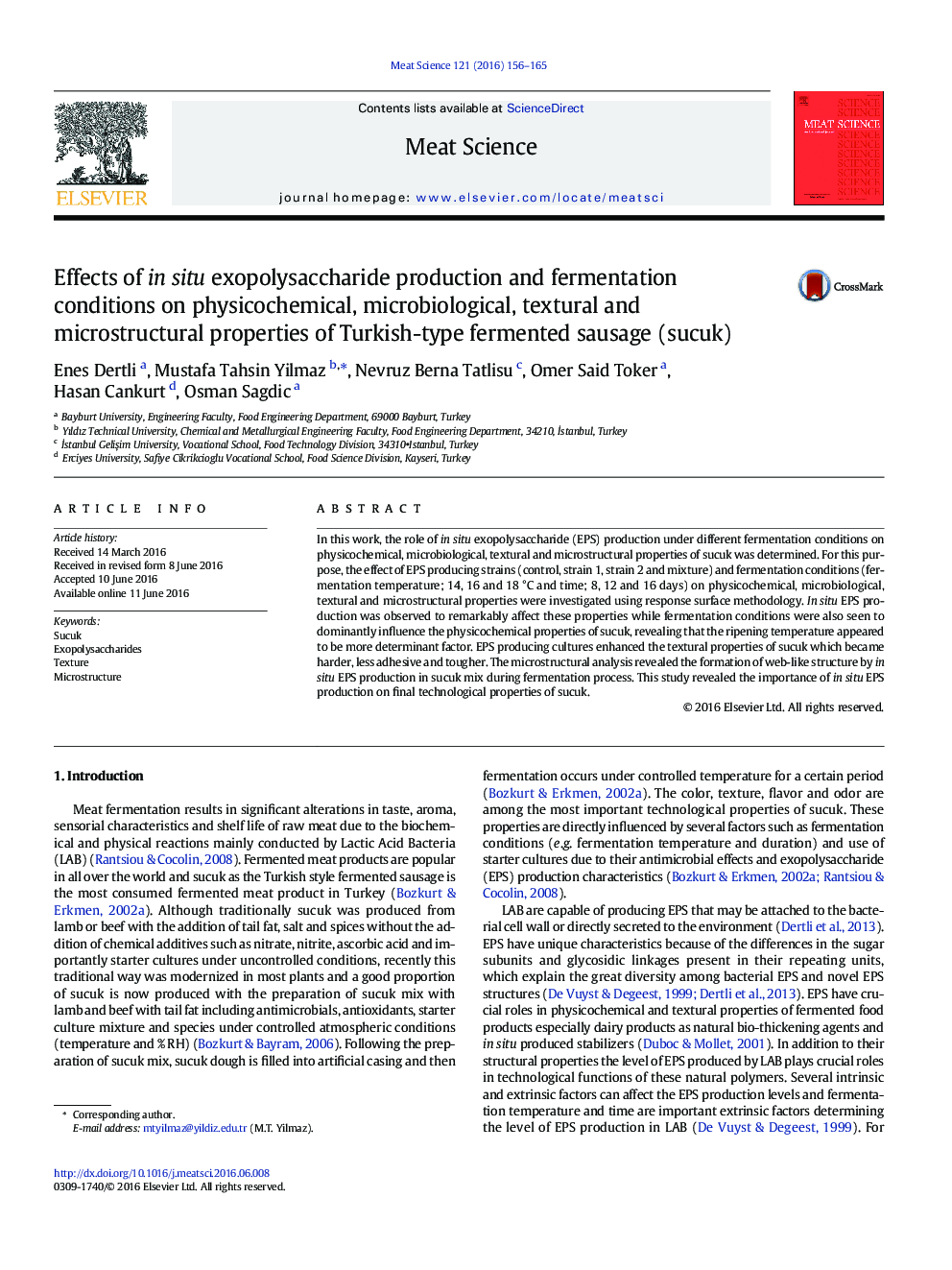| Article ID | Journal | Published Year | Pages | File Type |
|---|---|---|---|---|
| 5791066 | Meat Science | 2016 | 10 Pages |
â¢Role of in situ exopolysaccharide production on properties of sucuk was investigated.â¢Sucuk mixes were fermented at 14, 16 and 18 °C for 8, 12 and 16 days.â¢Using EPS producing cultures enhanced textural properties of sucuk samples.â¢Microstructural analysis revealed the formation of web-like structure.â¢This study revealed the importance of in situ EPS production on sucuk production.
In this work, the role of in situ exopolysaccharide (EPS) production under different fermentation conditions on physicochemical, microbiological, textural and microstructural properties of sucuk was determined. For this purpose, the effect of EPS producing strains (control, strain 1, strain 2 and mixture) and fermentation conditions (fermentation temperature; 14, 16 and 18 °C and time; 8, 12 and 16 days) on physicochemical, microbiological, textural and microstructural properties were investigated using response surface methodology. In situ EPS production was observed to remarkably affect these properties while fermentation conditions were also seen to dominantly influence the physicochemical properties of sucuk, revealing that the ripening temperature appeared to be more determinant factor. EPS producing cultures enhanced the textural properties of sucuk which became harder, less adhesive and tougher. The microstructural analysis revealed the formation of web-like structure by in situ EPS production in sucuk mix during fermentation process. This study revealed the importance of in situ EPS production on final technological properties of sucuk.
